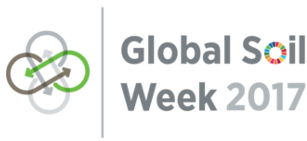IASS Global Soil Forum discusses inclusive and participatory follow-up and review of the 2030 Agenda at the European Development Days (EDD 2016)

How can vulnerable land users be empowered to act as agents of transformational change? Still from the music video Golden Grounds/ Illustration Ulli Keil cc.IASS Global Soil Forum
How can the vulnerable land users be empowered to become agents of the 2030 Agenda for Sustainable Development? The IASS Global Soil Forum facilitated a discussion on the theme at the annual European Development Days (EDD), which took place from June 15-16 in Brussels. The session focused on the role of civil society engagement and participation of vulnerable land users through the creation of multi-stakeholder platforms. Organized by the European Commission, this massive conference brought together 42,000 participants from the development community to discuss the 2030 Agenda. The session was hosted by the IASS Global Soil Forum, Civicus Alliance, Together 2030, Biovision Foundation, TMG Think Tank for Sustainability and the Deutsche Gesellschaft für Internationale Zusammenarbeit (GIZ).
Five main messages emerged from the Session.
Bridge the gap between local realities on participatory policy processes and the level of ambition enshrined in the 2030 Agenda
Partnerships have a huge role to play; new partnerships are being called for at all levels to include a wide range of stakeholders to include everyone’s contributions to a transformational 2030 Agenda. As panelist Oli Henman (CIVICUS) noted, “the only way that policies will really reach and achieve the lasting, systemic type of change that [the] Agenda aspires to, is if they are really owned and driven by the communities that it purports to speak for.”
Listen to the audio recording on Soundcloud ![]()
Participation must be created and not assumed
Inclusion and participation need to be deliberately considered as features of a successful implementation of the 2030 Agenda. Alexander Müller of TMG proposed that “the existence and creation of inclusive and participatory multi-stakeholder dialogues should be an indicators of how governments are implementing the Agenda”. The kind of data collected through follow-up and review mechanisms and the way it is collected should open up ways for the poorest and most vulnerable to hold governments accountable. In this way, participation must be created and cannot be assumed. Namhla Mniki-Mangaliso of Africa Monitor South Africa pointed out that, “this concept of participation, inclusivity, is not something that nice governments do; it is something that people are going to simply demand because they are recognizing it as their right… we need to begin to respond to this by making sure we are creating the systems that will enable that kind of participation.” This includes being aware of the costs of participation for vulnerable groups, staying away from the use of overly complicated or technical language, ensuring that enough time is provided for participation to take place and for involved groups to organize and develop their inputs, and ensuring that the impacts and outcomes of the dialogue are clearly stated and implemented.
Participation cannot replace rights
Especially in the case of natural resources (i.e. land), participation will only be meaningful if rights holders and states as duty bearers are addressed as such. In this regard, Mniki-Mangaliso again noted the importance of remembering that “the idea is not to come in with ambitious, lofty ideas of what inclusivity and participation mean, but rather to look at what already works on the ground, what are communities already using, and simply leveraging that in order to make sure there are review processes and accountability processes that work.” Land productivity, for instance, is of great importance in terms of how vulnerable groups are able to contribute to achieving food security and coming out of poverty. Their empowerment for participation needs to also take into account difficulties faced by the particular physical characteristic of the natural resource base available.
Participatory Processes need to be financed
This aspect must be integrated into the implementation of 2030 Agenda, by whom and how much is left up to debate. Ensuring participatory and inclusive processes is likely to remain an area funded largely by public sources, although examples of private funding are beginning to unfold. Official development aid can play a facilitation role in this regard, but ultimately, alternative and sufficient support needs to be made available to ensure multi-stakeholder processes are in place and participation is supported.
For more information, please download the session messages here, and visit the visit the session’s dedicated page for a summary, audio recording and photo gallery.
The Global Soil Forum at the IASS will be hosting the High-Level Event “Towards Thematic Reviews for an Integrated Follow-Up & Review of the 2030 Agenda” on 7-8 of July in New York ahead of the High Level Political Forum to continue the discussions. For more information and to receive an invitation, please write an email to SDG-Conference@iass-potsdam.de


